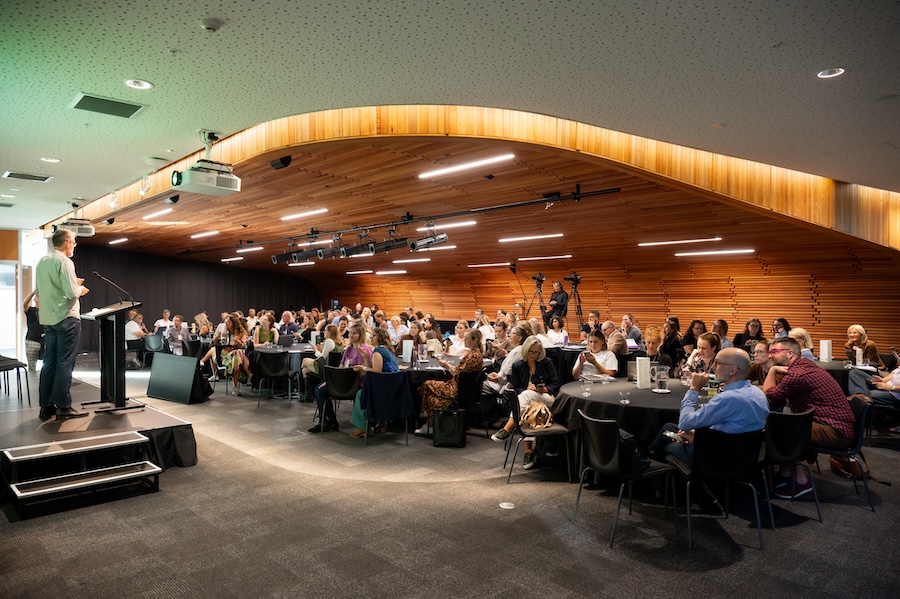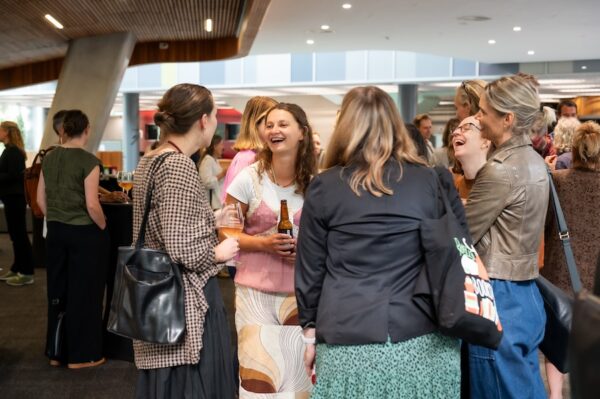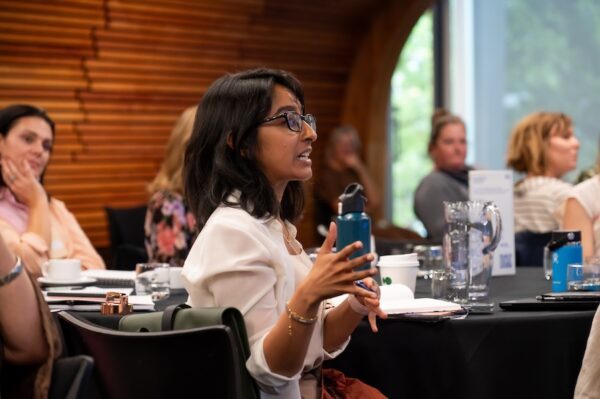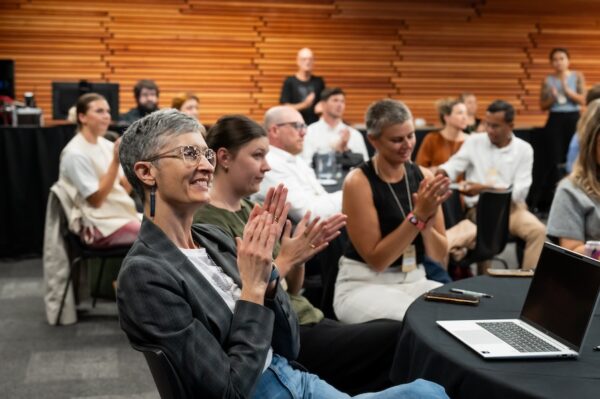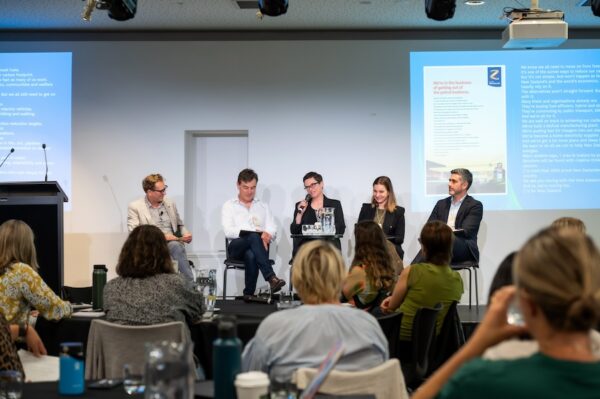Make your sustainability message stick
Communications and sustainability professionals rubbed shoulders at the Communicating Sustainability Masterclass, hosted by the Sustainable Business Network at AUT in Auckland on 25 March 2025.
The event tackled key challenges such as greenwashing, effective messaging, behavioural change and the role of AI. Industry experts shared practical advice to help businesses communicate their sustainability initiatives with credibility and impact.
Six key takeaways
- Be authentic
Sustainability messaging must align with your brand values. Jason Cate (Kantar) emphasised the importance of being meaningfully different from your competitors while staying true to your brand identity. John Berry (Pathfinder Asset Management) highlighted that transparency builds trust – even (or especially) when things don’t go to plan.
As Gabrielle Pritchard (GoodSense) put it, “people can smell a rat and can tell when something is off”.
Rui Peng (Critical) incorporates humour into his storytelling, because it reflects who he is – an approach that enhances authenticity and audience connection.
- Know your audience
Understand your target audiences and tailor your message to resonate with them. Mark Sorensen (Cleanery) recommended adjusting messaging based on the audience – for example when talking to consumers, focus on the functional benefits of your product, but lead with sustainability when talking to investors.
Test your claims externally before publicising them. Daniel Street (DLA Piper) warned that while claims might be technically accurate, they can still be perceived as misleading by others. Cat Rowe (Silver Fern Farms) shared how her team engaged external groups to test their sustainability claims. Jessica Palairet (Lawyers for Climate Action) reinforced the principle: don’t overstate – be specific and back up claims with evidence.
- Drive behaviour change through messaging
Most people already understand the importance of sustainability. The challenge is overcoming barriers to action.
Jason Cate stressed the need to make sustainable choices easy, meaningful and rewarding. Rebecca Styles (Consumer NZ) echoed this, advocating for clear, specific and simple messaging.
Mat Maroni (Merz Institute) highlighted the marketing industry’s role in driving ecological overshoot by encouraging over-consumerism. He challenged marketers to use their skills to help reverse the crisis.
- Focus on the positive
Evidence shows that messaging evoking positive emotions is more effective than that focused on the negative. Mike Casey (Rewiring Aotearoa) urged businesses to inspire action through optimism and solution-focused storytelling.
- Have robust process checks in place
Establish clear processes to review and approve sustainability communications across all your channels. This includes auditing older website content to make sure it remains accurate and relevant.
- Use AI wisely – enhance, don’t replace
AI tools can accelerate and scale sustainability messaging, but human oversight is essential. Arwen Vant (Xero) advised using AI to enhance high-value work, not replace it. Never publish AI-generated content without review. There can be inaccuracies and inherent biases.
Be aware of AI’s environmental impact. Kyoko Locussol (AKQA) highlighted that a single ChatGPT prompt emits 4.4g of CO2, compared to 0.2g for one Google search.
Ethical concerns exist around AI-generated images. Laura Cibilich (RUN Aotearoa) explained why her agency avoids using AI to generate images of people, especially faces, due to concerns over training data sources. Consider disclosing when you have used AI, especially for client work.
And Professor Albert Bifet (Te Ipu o te Mahara AI Institute, University of Waikato and Artificial Intelligence Researchers Association) gave a glimpse of what may be around the corner for AI. This could include digital assistance and robots that use AI to understand the physical world.
Finally, what does success look like?
According to Daniel Piper, success is when businesses feel confident making sustainability claims. “In order to transition to a low carbon economy, we need people to be loud and proud about the action that they’re taking.”
Watch highlights of the event in the below video created by Baz Caitcheon of Bazzacam.
NZBusiness was the Media Partner of the event.

